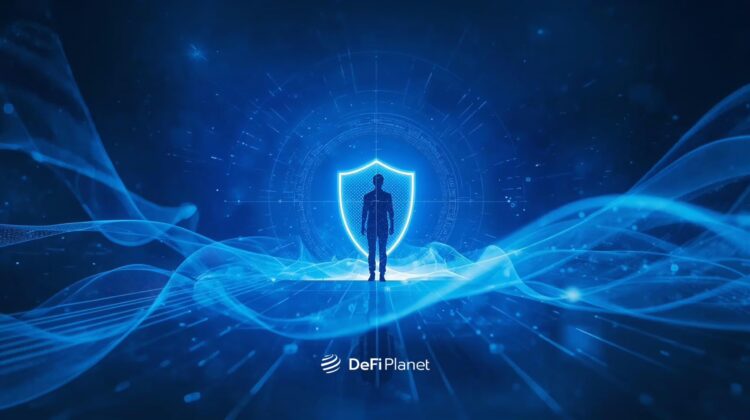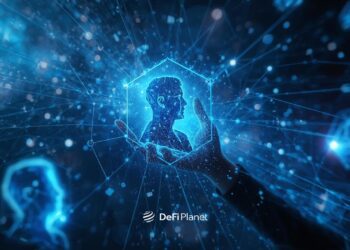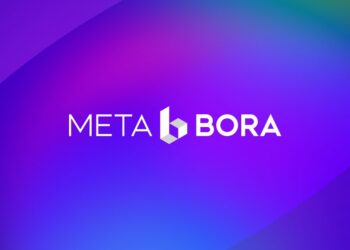When joining a new social network or voting in an online poll, you\’d typically have to prove you\’re a real person and not a bot. The internet has tried many ways to do this, from CAPTCHA (those puzzles that ask you to click on traffic lights) to uploading your ID or even scanning your face, but what if there were a way to prove you\’re human without giving up your personal information?
This is where Proof of Personhood (PoP) comes in, and it\’s a growing idea in the world of Web3. PoP helps people prove they are real, unique individuals and without needing to reveal who they are. While it may sound like magic, it\’s very real and incredibly important for creating a safer, more private online world.
Why Identity is a Big Deal
On the internet, identity is everything. If anyone can pretend to be someone else, trust falls apart, and that is why websites and apps often ask you to verify your identity with an email address, a phone number, or even a government-issued ID, but these methods come with problems:
- Privacy: You have to share personal info, which can be hacked or sold.
- Accessibility: Not everyone has a government ID or wants to share one.
- Surveillance: Companies and governments can track what you\’re doing.
So how do you create a decentralized identity that proves you\’re a unique person without handing over your life story? PoP aims to answer that.

What Is Proof of Personhood?
Proof of Personhood, simply put, is a way to show you\’re a real human being, not a bot or a fake account, without revealing your private details. It\’s a powerful idea for online communities, voting systems, and even financial apps that need to know you\’re not creating multiple accounts to cheat the system.
Some systems use things like eye scans or fingerprints, but not everyone is comfortable with that. These methods also raise big questions about privacy, and that is why many developers are working on biometric-free identity systems. Instead of using your body, these systems look at how you interact with the world, how often you show up, how you behave online, or even how you contribute to a community.
Self-Sovereign Identity: You Control the Keys
One of the coolest things about PoP is that it often fits into a bigger idea called self-sovereign identity (SSI). That means you, and only you, control your digital identity. Instead of logging into apps with your Google or Facebook account (which tracks everything you do), you use a special kind of digital wallet that stores your ID.
No one, not even a government or big tech company, can take your identity away; you’re in complete control. That means you decide what personal information to share, when to share it, and with whom. It’s like having a high-tech digital passport in your pocket, but you’re the only one who holds the keys.
Let’s say you want to prove you’re over 18 to access a website. Normally, you’d have to show your entire ID, your full name, address, and birthday, but with SSI, you can prove just your age without revealing anything else. It’s like answering a yes-or-no question: “Are you over 18?” without giving up any extra details. That’s what Web3 privacy is all about: letting you interact with apps and services without being watched or tracked every step of the way.
And it gets better, want to vote in an online community poll without revealing your real name? SSI lets you do that, too. Your vote is tied to your proof of personhood, not your personal identity. You can show you’re a real, unique human (not a bot or someone voting twice) without giving away your face, fingerprints, or government ID. This is called a biometric-free identity, and it’s a big deal because it protects people’s physical privacy while still ensuring trust.

This is also changing how we think about identity checks in the financial world because right now, most crypto platforms ask for traditional KYC (Know Your Customer) verification, which often means sending in photos of your ID and face. This creates risks: your info could get hacked, leaked, or even sold. Blockchain KYC is a newer, smarter approach. With blockchain-based proofs, you can confirm you’re a verified person without ever uploading a document or sharing sensitive data. The verification happens once, privately, and then you use that proof across multiple platforms without repeating the process or losing control of your privacy.
All of this together, SSI, Web3 privacy, biometric-free identity, and blockchain KYC, paints a picture of a future internet that’s safer, fairer, and more respectful of who you are. It\’s an online world where you stay in control, and your digital identity works for you, not against you.
Blockchain KYC Without the Creepy Surveillance
\”KYC\” stands for \”Know Your Customer,\” and it\’s what banks and crypto exchanges use to make sure you\’re a real person. Usually, this means sending in a picture and your ID, which goes against everything we just talked about, but what if blockchain KYC could work without collecting all that sensitive info?
Some PoP systems aim to do exactly that. They create one-time, anonymous proofs that say, \”This wallet belongs to a real person.\” That means you can trade, vote, or join communities without being tracked. This new way of verifying identity helps fight spam and scams, while keeping your privacy intact.
Real-World Examples
Projects like Worldcoin, BrightID, Proof of Humanity, and Idena are all exploring different ways to make PoP work. Some use social graphs (your network of friends) to prove you\’re real. Others create small online ceremonies where people show up at the same time to confirm each other’s identity.
While some of these methods are still being tested, they all point toward the same goal: making the internet safer and fairer, without giving up our privacy.
Web3 Privacy and the Future
In the world of Web3 privacy, PoP is a major step forward. Today, so much of what we do online is watched, tracked, and recorded. Advertisers know what you like, companies sell your data, and hackers are always looking for leaks. PoP flips the script by letting you prove you\’re real without revealing anything unnecessary.
It also opens the door to fairer online systems. Imagine a social network where each person gets one vote, and no one can make fake accounts, or a universal basic income system that gives everyone crypto, but only once per person. With PoP, these ideas become possible.
Challenges to Solve
Of course, PoP isn\’t perfect yet, and developers still need to figure out:
- How to prevent people from registering more than once
- How to make it easy and safe for everyone to use
- How to stay secure without spying on users
The good news is, many different people are working on it, and the dream is to create an internet where you\’re in control of your identity, where privacy is respected, and where fairness is built into the system.
READ ALSO: Zero-Knowledge Everything: Trust, Privacy, and Verification in the Digital Age
The Bottom Line
Proof of Personhood is more than just a technical tool; it\’s a new way of thinking about identity in the digital age. In a world filled with bots, scams, and surveillance, PoP offers a better path because it helps us move toward an internet that trusts people, not giant corporations, and respects privacy, instead of invading it.
As Web3 grows, so does the need for identity systems that are safe, fair, and easy to use, with Proof of Personhood being one of the keys to unlocking that future, a future where being online doesn’t mean giving up who you are, where you live, or what you look like.
It’s not just about blocking spam or keeping bad actors out; it’s about empowering individuals because when you have a secure, private, and self-sovereign identity, you get to participate in online communities, earn rewards, vote on important decisions, and use digital services, all without giving up control of your data. That’s the dream of Web3 privacy: a world where you own your identity, your reputation, and your future.
Imagine an internet where everyone gets one voice, one vote, no fake accounts, no manipulation, where you can prove you\’re real without being forced to scan your face or upload a government ID. Where your identity works like a secret superpower, unlocking doors without exposing your secrets. That’s what Proof of Personhood can make possible.
It won’t happen overnight; there are still technical puzzles to solve, ethical questions to explore, and tools to improve, but the path is clear and it leads to a digital world built not on surveillance, but on trust, dignity, and human connection. The internet changed the world once; with Proof of Personhood, it might just do it again, this time, for the better.
Disclaimer: This article is intended solely for informational purposes and should not be considered trading or investment advice. Nothing herein should be construed as financial, legal, or tax advice. Trading or investing in cryptocurrencies carries a considerable risk of financial loss. Always conduct due diligence.
If you want to read more market analyses like this one, visit DeFi Planet and follow us on Twitter, LinkedIn, Facebook, Instagram, and CoinMarketCap Community.
Take control of your crypto portfolio with MARKETS PRO, DeFi Planet’s suite of analytics tools.”





















